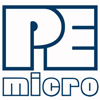Home > On-Demand Archives > Talks >
Using RPI Pico for testing your FPGA Application
Adam Taylor - Watch Now - EOC 2023 - Duration: 28:16

Developing any FPGA or Embedded system can be complex, especially when it comes to validating either on development boards or in the real system that it functions as intended across all operating and failure conditions.
This is especially true when we are working with high reliability or mission critical systems such as satellite applications where we might want to retire functional risk early in the development program.
In this session we will explore how we can use RPI Pico to emulate system interfaces connected to our embedded system / FPGA. This allows the emulation of failure conditions, boundary conditions and corner cases with ease. Implementing such an approach will assist with validation and reduce the risks of issues later in development.
We will present several real-world examples where Adiuvo has used RPI Pico to simulate interfaces from SPI and I2C to clocking and advanced communication interfaces like SpaceWire.























Adam,
Thanks for the insight on the RPi Pico (and RP2040) applications, particularly the development and testing support functions as well as the FPGA JTAG adapter. With so much technology to investigate these days, I was unaware of the Pico's Programmable State Machines but I will certainly take a closer look at it's capabilities. I'm retired so you would think I would have all the time in the world to investigate, however it often ends up being a case of "too much cool stuff to check out with so little time to do so." I have been trying to clear my projects list to get into FPGA development and a number of related applications. I hope to go through your blogs and tutorials on the subject as they appear to have great content and details.